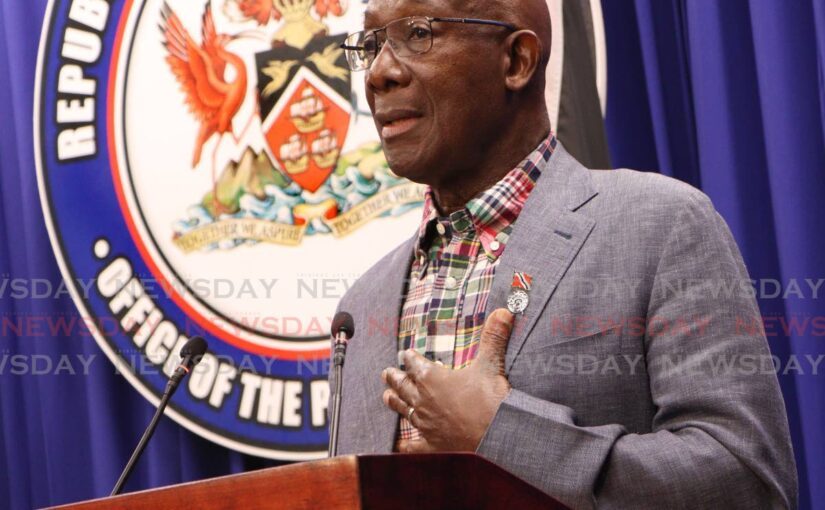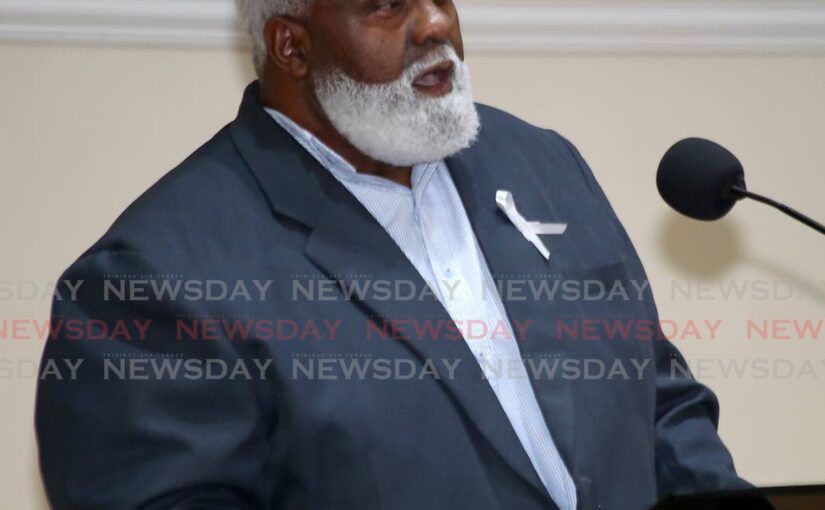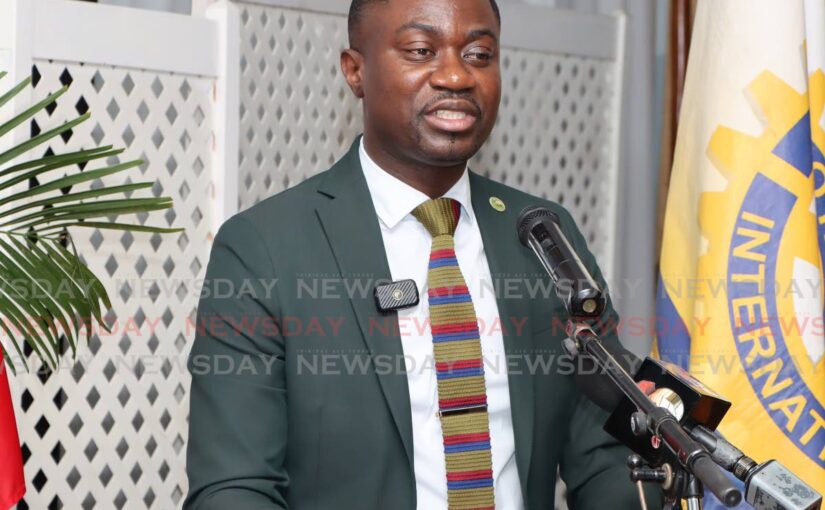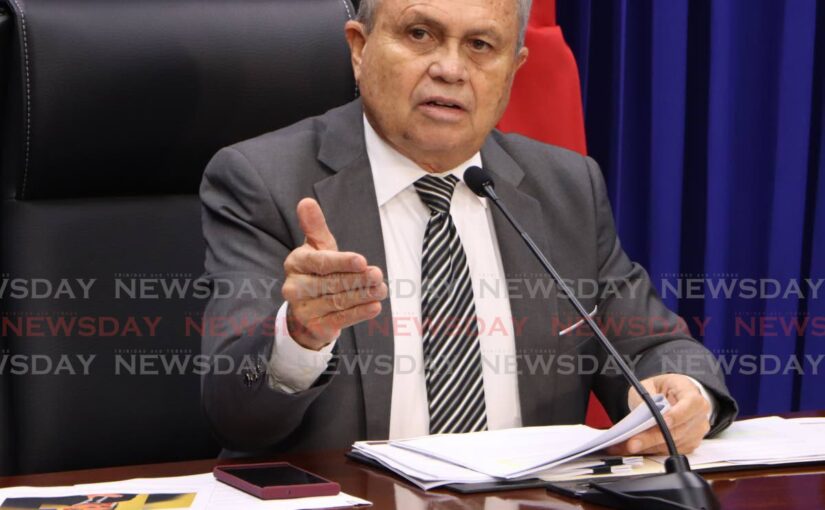On November 29, the Court of Appeal is expected to deliver its judgment on a landmark 2018 High Court ruling that declared sections of the Sexual...
Vous n'êtes pas connecté
- English
- Français
- عربي
- Español
- Deutsch
- Português
- русский язык
- Català
- Italiano
- Nederlands, Vlaams
- Norsk
- فارسی
- বাংলা
- اردو
- Azərbaycan dili
- Bahasa Indonesia
- Հայերեն
- Ελληνικά
- Bosanski jezik
- українська мова
- Íslenska
- Türkmen, Түркмен
- Türkçe
- Shqip
- Eesti keel
- magyar
- Қазақ тілі
- Kalaallisut ; kalaallit oqaasii
- Lietuvių kalba
- Latviešu valoda
- македонски јазик
- Монгол
- Bahasa Melayu ; بهاس ملايو
- ဗမာစာ
- Slovenščina
- тоҷикӣ ; toğikī ; تاجیکی
- ไทย
- O'zbek ; Ўзбек ; أۇزبېك
- Tiếng Việt
- ភាសាខ្មែរ
- རྫོང་ཁ
- Soomaaliga ; af Soomaali
Rubriques :
 Maroc - NEWSDAY.CO.TT - A la Une - 28/Sep 06:58
Maroc - NEWSDAY.CO.TT - A la Une - 28/Sep 06:58
Privy Council rules wrongly
THE EDITOR: The TT Constitution is not founded and built upon the executive around which everything revolves. The executive dominates and controls, bestows and retracts. That is something from English constitutional-monarchal law that is not in the Constitution. Nor is the Privy Council tagged on to make it so. The Constitution sets up subsidiary structures that hold the executive in check and changing that dynamic or the status quo requires an "over-majority." So that the Privy Council declaring in the TTRA case that the entrenched clauses are not affected is not how this is managed. Furthermore, the TTRA case concerns terms of employment and it is relevant to the question of constitutionality so formed. It's true that the Rowley Government does not know how to handle it. The ruling also side-steps from the other subsidiary parties involved, namely the citizenry in its relations with the bureaucracy and the executive – precisely connected with the entrenched clauses. Moreover, this purported change means that any structure can be changed and rechanged by simple majority reflecting impermanence that (1) is not germane to the design of the public service and (2) switches a burden of litigation onto the citizenry, reversing the nature of accountability; while the permanence established by the Constitution is baselessly denied. The Privy Council has again erred as it did with the capital punishment time limit. Whereas in the latter it overtook the role of the Parliament absolutely, in this matter it has overtaken the Constitution to position the executive over it and assigning itself for seconding or moderating decisions via costly lawsuits. Among other things, the Constitution we have was chosen to avoid exactly that. The Privy Council was later forced to amend itself on its foolish and arbitrary ruling on capital punishment. The Privy Council disproved itself again. E GALY via e-mail The post Privy Council rules wrongly appeared first on Trinidad and Tobago Newsday.
Articles similaires
Privy Council reserves decision on lawsuit over unions having bank accounts
FIVE law lords have reserved their decision in a challenge over the Registration, Recognition and Certification Board’s (RRCB) decision to deny a...
EPA reiterates calls for changes to special tribunal laws
The Estate Police Association (EPA) is once again calling on Government to amend legislation governing the Essential Services Division (ESD) and the...
Auditor General: I will continue to fight
AUDITOR General Jaiwantie Ramdass remains defiant in defence of her actions and that of her office, the head of her legal team suggested on November...
NAPPS suspends its president, Yomi Otubela, over gross misconduct.
By Fashina Shakiru. The National Association of Proprietors of Private Schools, Lagos State, Nigeria (NAPPS) has suspended its National...
The 50-year war on democracy that built Trump's oligarchy and killed the American dream
When plunder becomes a way of life for a group of men in a society, over the course of time they create for themselves a legal system that authorizes...
JSC meets on Auditor General report on November 13
THE Parliament's Public Accounts Committee (PAC) will meet on November 13 at 10 am at the Red House to discuss the Auditor General's report on the...
Doubling down on Tobago autonomy
MANY issues might decide the next general election. Tobago autonomy is one of them. Farley Augustine’s shift in tone as it relates to two pending...
Civil Society Group writes Tinubu over Ondo Guber poll, tells Int'l Community to Watch Nigeria
The Joint Action Council for Democratic Governance (JACODEG) has called on President Bola Tinubu not to destroy his credential as a democrat by...
Wasteful case
THROUGHOUT his impasse with Auditor General Jaiwantie Ramdass, Minister of Finance Colm Imbert has been unafraid to exercise his legal rights. As the...
Les derniers communiqués
-
Aucun élément










